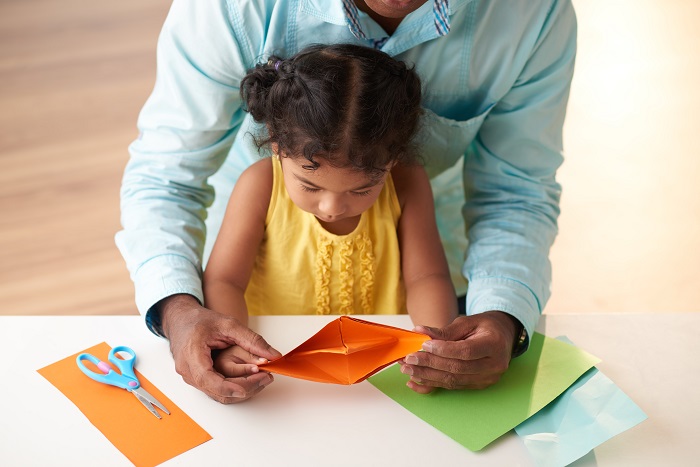The early years of toddlerhood are akin to a blank canvas, waiting to be painted with the hues of exploration, learning, and connection. Trust is the paintbrush that allows us to create vibrant strokes, forming the backdrop for our toddlers’ emotional and cognitive development. It’s not merely a concept but a dynamic force that influences every giggle, every curious gaze and every tiny step toward independence. As parents and caregivers, we play a pivotal role in shaping the foundation of our toddlers’ lives. From actually discovering how to build trust to the practical ways it molds the future leaders of tomorrow, let’s discover the profound impact trust can have on the upbringing of our precious toddlers.
What is Trust, Really?
Trust is the invisible thread that weaves through the fabric of our relationships. When we talk about creating trust with our little ones, we mean establishing a sense of reliability, security and understanding between you and your child. It is about creating an environment where your child feels safe, loved and confident. This is not to be confused with how to make a trust for a child or how to create a trust for a child. That, in itself, is an important step to take in planning your child’s financial security in the future. But before they reach the age of financial independence, the trust you need to create and build with your child is a more inward, personal effort.
How Does Building Trust in the Relationship Benefit Your Toddlers?
Trust forms the cornerstone of healthy relationships. It serves as the golden key that unlocks a world of mutual understanding, connection and shared joy. And here are the benefits that come with nurturing this invaluable bond!
- Emotional Security:
- Healthy Attachment:
- Open Communication:
- Confidence and Independence:
- Strengthened Parent-Child Bond:
- Emotional Resilience:
- Social Development:
- Foundation for Learning:
- Establishment of Values:
- Joyful Parenting:
Trust provides the secure foundation upon which your toddler can freely express emotions. Feeling emotionally secure allows them to navigate the ups and downs of life with confidence, knowing that you are a steadfast anchor in their world.
The trust forged in the early years lays the groundwork for a healthy parent-child attachment. This secure connection becomes a source of comfort and support, fostering a sense of safety that encourages exploration and independence.
Building trust creates an environment where open communication thrives. Toddlers who trust their caregivers are more likely to share their thoughts, feelings and experiences, laying the groundwork for a lifelong habit of effective communication.
Trust empowers toddlers to take on challenges, make choices and explore the world around them. With the knowledge that they have a supportive foundation, toddlers develop confidence and a burgeoning sense of independence.
Trust deepens the connection between parents and toddlers, creating a bond that withstands the test of time. Shared moments of joy, laughter and even challenges become opportunities for growth and understanding.
Trust is a shield that equips toddlers with emotional resilience. It provides them with the tools to navigate setbacks, learn from experiences and develop a positive outlook on life.
Trust is not limited to the parent-child relationship; it spills over into the toddler’s interactions with others. Toddlers who experience trust at home are more likely to develop healthy social skills, forming positive connections with peers and caregivers outside the family.
A trusting relationship sets the stage for effective learning. Toddlers who feel secure are more receptive to exploring new concepts, engaging in educational activities and developing a love for learning that will benefit them throughout their lives.
Trust serves as a powerful teacher, helping toddlers understand and internalize essential values such as honesty, integrity, and empathy. Through trust, they learn the importance of treating others with kindness and respect.
As trust flourishes, the journey of parenting becomes a more joyful and fulfilling experience. The shared laughter, the small victories and the precious moments of connection create a tapestry of love and happiness that defines the beauty of parenthood.
How to Build Trust in a Fun and Memorable Way:
Now that we’ve explored the significance of trust and its role in your child’s development, let’s dive into some delightful trust-building activities that you can enjoy with your toddlers. These activities are not only fun but also foster a strong sense of connection and security.
- Treasure Hunt of Emotions:
- Trust Walk:
- Building Together:
- Storytime Adventures:
- Mirror, Mirror:
- Magical Hug Ritual:
- Family Dance Party:
Create a “treasure map” of different emotions (happy, sad, surprised) and hide emotion cards around the house. Guide your toddler on a treasure hunt, encouraging them to find and share when they’ve experienced each emotion. This activity promotes emotional expression and strengthens the bond through shared exploration.
Blindfold yourself and gently guide your toddler on a trust walk around a safe space in your home or backyard. Encourage them to trust your guidance and describe what they feel, hear or smell. This not only builds trust but also sensory awareness.
Use building blocks or playdough to create something together. It could be a tower, a funny creature or anything your imagination desires. Collaborative creation fosters teamwork, communication and a shared sense of accomplishment.
Take turns telling a story, with each person adding a sentence or two. This storytelling activity not only enhances creativity but also strengthens the connection between you and your toddler as you weave a tale together. If you feel like taking it to another level, put on a skit with your toddlers for the family, depicting the story you just created!
Sit facing each other and mimic each other’s movements and expressions. This activity promotes imitation, a fundamental trust-building mechanism, while also creating moments of joy and laughter.
Establish a special “magic word” that, when said, signals a magical hug time. Use this ritual during moments of stress or just as a sweet bonding activity, reinforcing the idea that your hugs have a magical, comforting power.
Crank up your favorite tunes and have a spontaneous dance party with your toddler. Dancing together is not only a great way to have fun and get those endorphins pumping through your body but also fosters a sense of togetherness and shared joy.
Keep in Mind:
While there’s always room for fun and games and creative activities, too, remember that your child is observing how you hold space for their needs and wants. So keep the following tips in mind, when actively building trusting bonds with your little ones.
- Be Present:
- Consistent Routine:
- Active Listening:
- Celebrate Achievements:
Spend quality time engaging in activities your child enjoys. Whether it’s playing, reading or crafting, being present builds a strong connection.
Children thrive on predictability. Establishing a consistent routine helps create a sense of security.
Show genuine interest in your child’s thoughts and feelings. Active listening fosters trust and encourages open communication.
Acknowledge and celebrate your child’s accomplishments, no matter how small. Positive reinforcement boosts confidence.
Signs your Toddler has Trust Issues:
Building trust with your children isn’t always smooth sailing. You may have done your homework, but your little ones still don’t react or cooperate as you hoped. These are trust issues you need to catch early and address.
Here are some red flags to look out for:
- Quiet, non-participative and withdrawn behavior
- Sudden aversion to hugs, kisses, or physical contact
- Difficulty in Calming Down
- Lack of eye contact
- Unexplained tantrums or unwillingness to cooperate
- Reluctance to share experiences, thoughts and feelings
- Preference for Other Caregivers
- Unusually strong fear of separation
- Resistance to Routine Activities
- Change in Sleeping or Eating Patterns
Trust is not just a concept; it’s a living, breathing force that shapes the future leaders, dreamers, and achievers blossoming within your homes. From the first tentative steps of your little ones to the vibrant leaps of independence, trust is the invisible hand guiding them forward. At EuroKids, we celebrate these magic-filled moments, providing not just education but a sanctuary where trust blooms naturally. Together, let us build a community that values the art of learning, embraces the essence of childhood, and cherishes the trust forged in every step of the way.
















